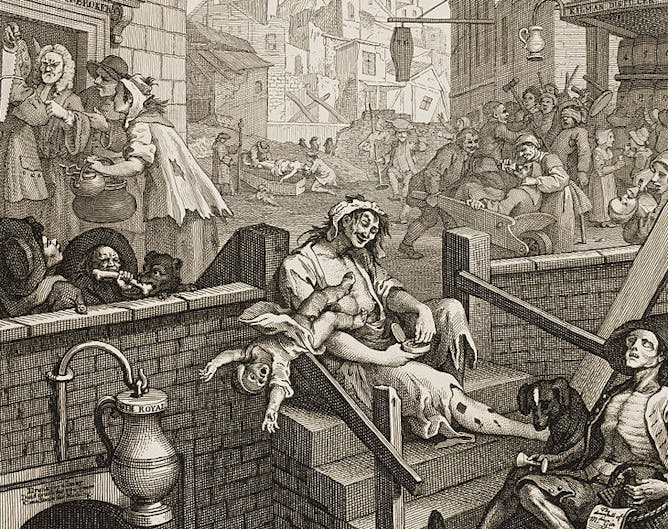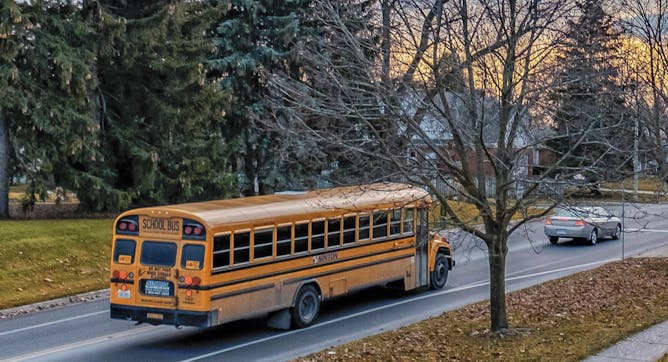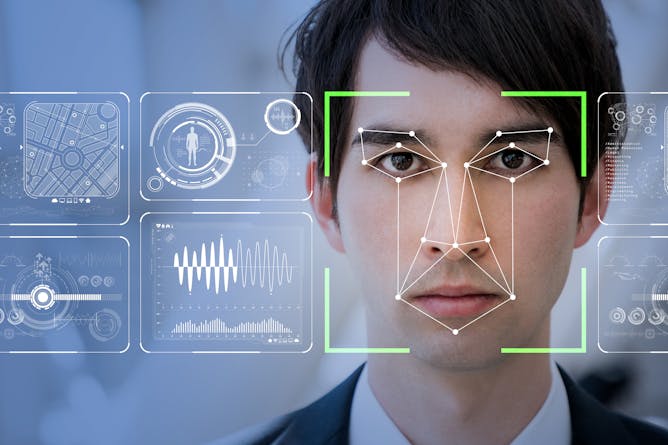|
A week ago, the world was waiting to see what would happen at the Trump-Putin summit in Helsinki. We all know now how that turned out. Today in The Conversation Canada, J.M. Opal, an American teaching at McGill University, looks at how the image of the United States is changing abroad. He compares the present-day United States to Britain in the 18th century, a time that led to dissent and revolution.
Srdjan Vucetic of the University of Ottawa, writing with two international academics, looks at another angle of the changing U.S. policy: the implication of Chinese global dominance in the wake of Trump’s hostile approach to trade and defence with America’s traditional allies.
Ontario’s education system has been in the news a lot since Doug Ford’s new government came into power. Samuel Trosow and Bill Irwin of Western University says it’s time for Ontario to merge its public and separate school systems into one, saying consolidation is necessary as the new government looks to cuts education costs.
And finally…. Does facial recognition technology make you feel more safe or more worried? William Michael Carter of Ryerson University explores the many ways facial recognition is being used around the world – including how much toilet paper can be dispensed in public washrooms in China!
Regards,
|

Gin Lane, a scene of urban desolation with gin-crazed Londoners; a woman lets her child fall to its death and an emaciated ballad-seller.
William Hogarth
J.M. Opal, McGill University
When the U.S. broke away from the "mother country," the dream was to let the common good overruled selfish and private interests. Yet the federal government is arranged so this can never occur.
|

China’s aspirations of global dominance will hit a snag given the world’s other major powers identify democratic values as central to their national identies. Only China and Russia do not. Russian President Vladimir Putin and Chinese President Xi Jinping in Beijing in June 2018.
(AP Photo/Dake Kang)
Srdjan Vucetic, University of Ottawa; Bentley B. Allan, Johns Hopkins University; Ted Hopf, National University of Singapore
New research suggests the values and identities of the world's great powers present a major barrier to China's aspirations of global domination. Do not bet on China’s hegemonic prospects just yet.
|

The era of two school systems in Ontario should be riding into the sunset. There are enormous cost savings and community benefits to be had by merging the public and separate school systems. A school bus is seen here in Markham, Ont.
(Shutterstock)
Samuel E. Trosow, Western University; Bill Irwin, Western University
The time to consolidate Ontario's two school systems is long overdue. It's no longer viable to dismiss the issue on Constitutional grounds. All that's needed is political will.
|

Will facial recognition software make the world a safer place, as tech firms are claiming, or will it make the marginalized more vulnerable and monitored?
Shutterstock
William Michael Carter, Ryerson University
Facial recognition software is an Orwellian concept that will monitor and regulate the public. Most disturbing is the recent announcement by China to use it in school systems.
|
Science + Technology
|
-
Frans von der Dunk, University of Nebraska-Lincoln
Forty-nine years ago, on July 20, 1969, American astronauts planted a US flag on the moon. A space lawyer explains the implications, who owns the moon, and what it means for lunar mining.
|
|
Culture + Society
|
-
Jose Miguel Cruz, Florida International University
Nicaragua has exploded in violence since mass protests began against President Daniel Ortega in April, with hundreds dead and thousands wounded. Amid such chaos, criminal violence is likely to follow.
|
|
Health + Medicine
|
-
Anne Carter, Nottingham Trent University; Emily J. Hall, Nottingham Trent University
Veterinary hospitals report mortality rates of up to 63% in dogs with heatstroke.
|
|